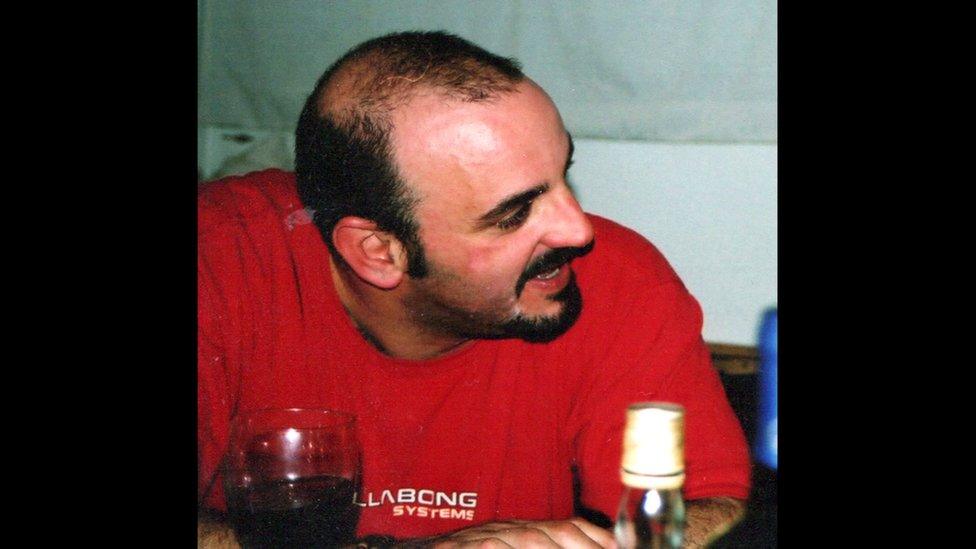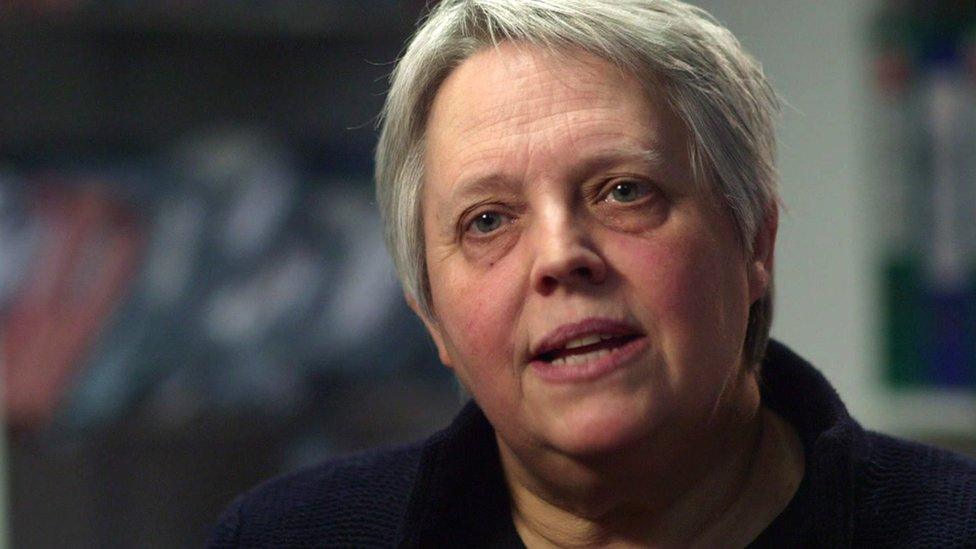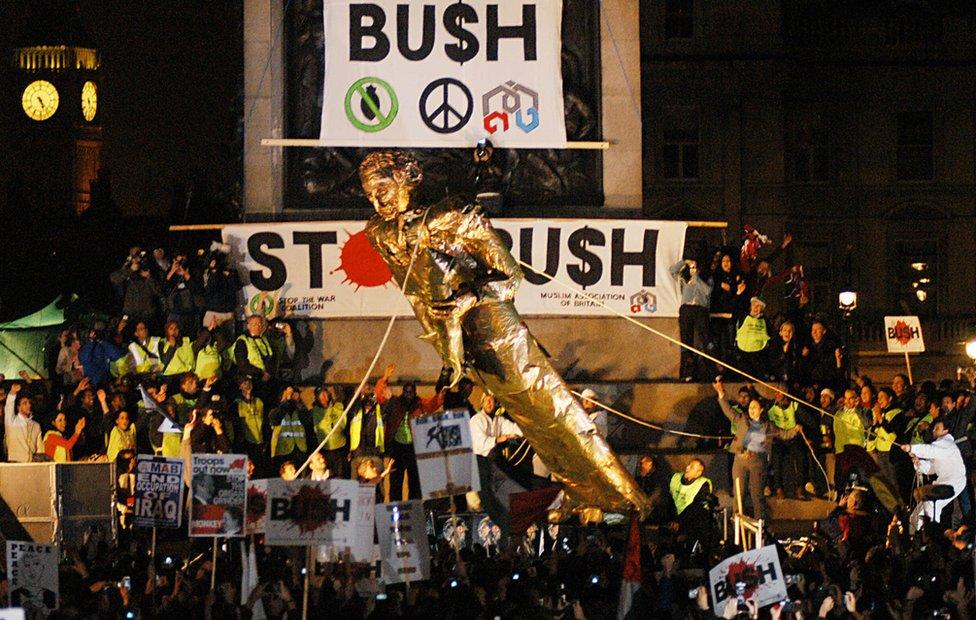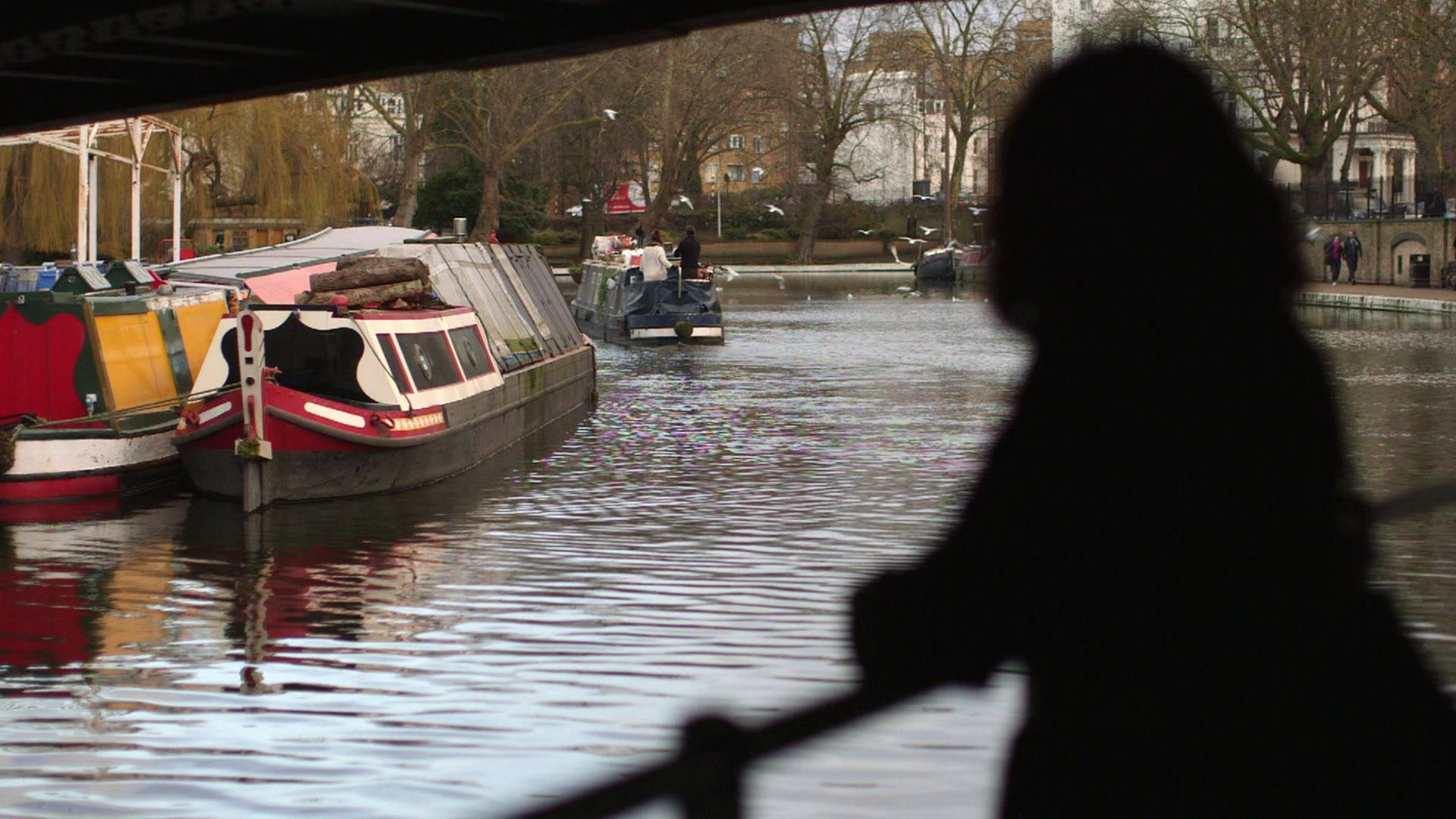Undercover policeman proposed to activist
- Published
Andrea: "It felt right, it felt genuine"
An undercover Metropolitan Police officer proposed to an activist and lived with her for 18 months, the BBC has learned.
The previously unknown case will place fresh pressure on the force, which last year was forced to apologise to seven women who had similar relationships.
The woman in the latest case told BBC Newsnight she was a victim of "psychological torture".
The Met would neither confirm nor deny the identity of the undercover officer.
The woman, who is being referred to by the pseudonym Andrea to protect her identity, was friends with a group of left-wing political activists, mostly in the Socialist Party, who are thought to have been the target for long-term infiltration by the Met.
The Socialist Party is a democratic political group to the left of the Labour Party that rejects violence.
On Monday, she started legal action against the Metropolitan Police over the relationship, which lasted from 2002 to 2004.
A joint investigation by BBC Newsnight and The Guardian has unmasked Andrea's former partner, who was pretending to be a left-wing political activist.
He used the cover name Carlo Neri. The BBC knows his real name but is not publishing it to protect his family.

Carlo Neri proposed to Andrea and the two lived together as a couple
Mr Neri proposed to Andrea in 2003 and she accepted. He was welcomed into her family and her parents, who lived in Scotland, viewed him as a future son-in-law.
Andrea told Newsnight that the deception she suffered meant she was the victim of "psychological torture" authorised by the police.
When he was living with Andrea undercover in central London, from November 2002 to May 2004, Mr Neri was married with a child.
He had a double life and needed to invent reasons to be away from the flat he and his wife shared in Maida Vale.
He showed Andrea photographs of a boy and said it was his son from a previous relationship. He said that his former partner had moved to Cornwall with the boy and he wanted to re-establish contact.
Full story on Newsnight on Monday 18 January at 22:30 on BBC Two
"He was probably away from home for four or five nights every fortnight and that would be due to work trips and every other weekend he would go to Cornwall to see his child," Andrea said.
"As far as I was concerned, I was going to spend my life with this man and his life was my life. Having that strong relationship with a child is a really important thing."
In fact there were no access trips to Cornwall. The photographs were of his real son who lived with his wife less than 10 miles away. It was just part of his cover story.
When he was living with Andrea in Maida Vale, Mr Neri liked to make himself useful to her friends in the Socialist Party. He said he was a locksmith.
"He quite often said people could improve their security of where they lived and again that seemed at the time to be hugely helpful. With hindsight there's a different perspective really because there's a huge amount of people's locks that someone had access to," Andrea said.

More on undercover policing

But their relationship started to break down at the end of December 2003. Carlo Neri was supposed to spend Christmas and New Year with Andrea at home in Maida Vale. But at the last minute, he told her his father was gravely ill in Italy and he had to be by his side.
When he returned from his trip to Italy - she now thinks that was another lie - he had completely changed.
He told her that he had just found out that his dying father had sexually abused a female relative. In retrospect, she believes this was all part of his cover story plan to end the relationship.
"The stuff that he was disclosing was horrendous. It was quite awful… when you love them and you see them being in that much pain - or so you think - you want to support them."
Andrea says it was the extreme nature of these lies that was particularly damaging.

Solicitor Harriet Wistrich has worked to help a number of women involved in similar relationships
Her solicitor, Harriet Wistrich from the law firm Birnberg Peirce, will argue that it was cruel and completely disproportionate to be targeting political activists close to the Socialist Party.
Andrea's experience is very similar to the stories of eight women who were also duped into entering sexual relationships with undercover police.
As part of the Met's settlement of all but one of their legal claims in November, Assistant Commissioner Martin Hewitt issued a stark apology, saying that some undercover officers had entered into "long-term intimate sexual relationships with women which were abusive, deceitful, manipulative and wrong".
"I acknowledge that these relationships were a violation of the women's human rights, an abuse of police power and caused significant trauma," he added.
A public inquiry into undercover policing was opened last summer. It's expected to run for several years and the Metropolitan Police told the BBC it would cooperate fully.
Ms Wistrich is now pressing for the disclosure of the cover names of all the undercover police officers authorized to infiltrate political and protest groups.
She told Newsnight: "This is clearly a pattern that they worked on. The other women that had other relationships described similar exit strategies and in each of those cases they were very harmful.
"This is one of the worst I've heard in terms of inventing a whole story of sexual abuse and violence that didn't actually exist and I think that was a particularly sick thing to do."

Andrea and Carlo Neri met at a Stop the War protest in London
The Metropolitan Police refused to confirm or deny whether Mr Neri was an undercover officer. That's the standard response.
But in a statement, Assistant Commissioner Martin Hewitt told Newsnight that the Met "no longer carries out 'long-term infiltration deployments' in these kinds of groups but would accept responsibility for past failings".
He accepted there was a risk of "collateral intrusion" in some of these cases.
Mr Hewitt admitted there were "failures of supervision and management" in the past, but stressed that undercover policing is now "extensively supervised".
He said: "All deployments are now rigorously assessed for necessity and proportionality and governed by a strict legal framework that is subject to independent oversight."
Richard Watson's film on undercover policing is on BBC Newsnight on Monday 18 January at 22:30 on BBC Two - you can also catch up afterwards on iPlayer.
- Published18 January 2016
